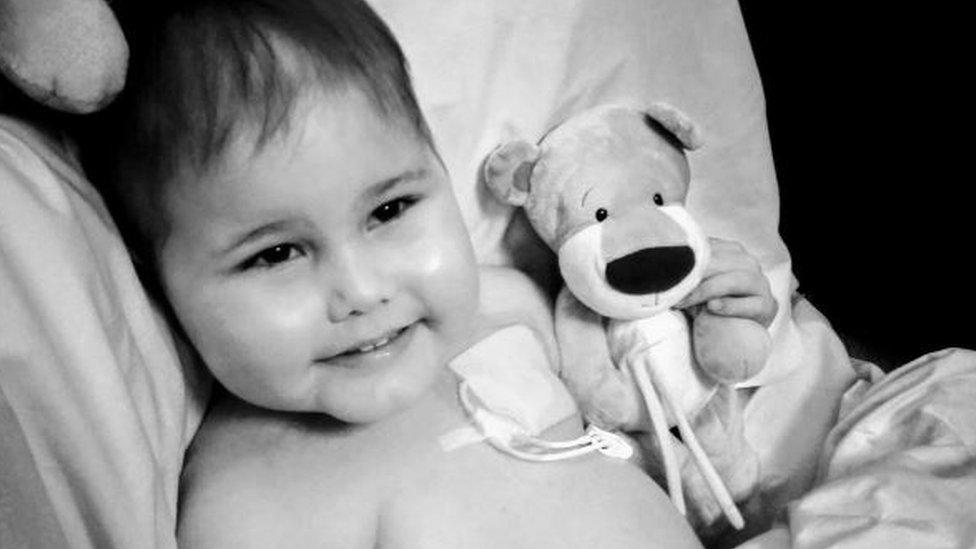'I call my stem cell donor my sister'
- Published
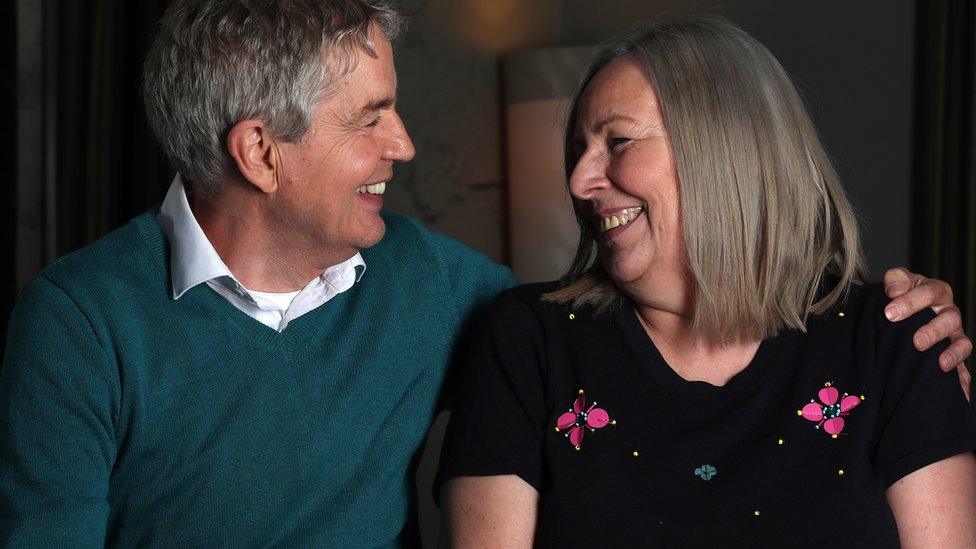
Gary Hodges and Karen Scoltock call each other brother and sister, after she donated the stem cells which saved his life
Blood cancer is the fifth most common type of cancer in the UK with someone being diagnosed every 20 minutes, according to charity DKMS. Only a third of patients in need of blood stem cell donation find a donor within their family - the rest rely on the odds of finding a match on the stem cell registry.
Gary Hodges was one of those people.
It was while on a much-anticipated trip abroad to see family that he began to feel unwell. Days after arriving in New Zealand he felt exhausted, but he brushed it off.
By the time he and his wife Marion arrived in the United States, Gary could hardly walk. It began to dawn on him it was something more serious. He went to hospital and had blood samples taken, which showed his haemoglobin level was dangerously low and he did not have enough platelets.
"I had the impression it was leukaemia," he said. "I was hoping they would say say 'no, [it's not that]', but that wasn't happening.
"Flying out from San Francisco and looking out of the window down on the city, I remember thinking I would never see my son there again.
"That was tremendously upsetting."
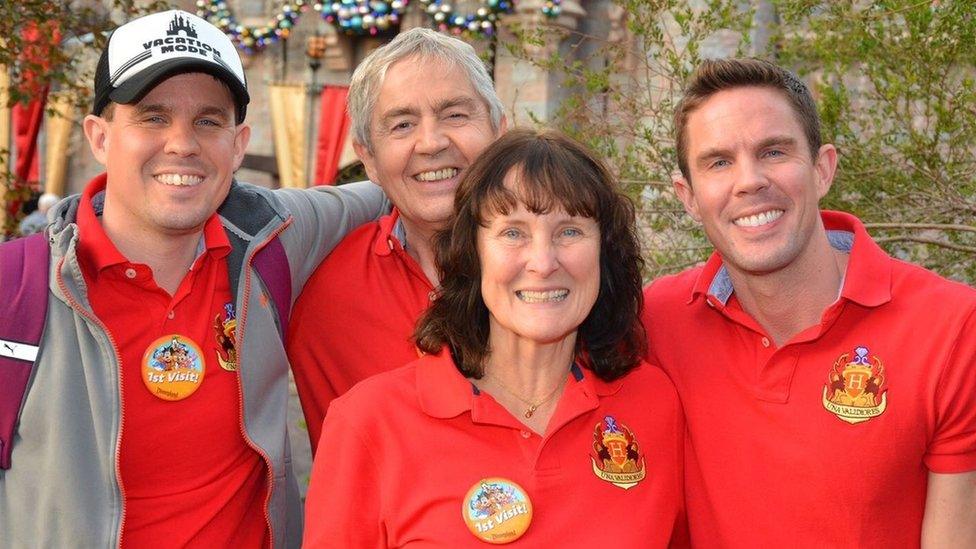
Gary Hodges and his wife Marion have two sons, James and Philip
Back home in Lymington, in Hampshire, he was diagnosed with acute myeloid leukaemia, an aggressive form of blood cancer, external which usually affects about 3,100 in the UK each year.
It became clear the only hope of saving the then 63-year-old's life would be a stem cell transplant.
He was added to the list of 2,000 people that hope for a match each year, and waited.


Karen was inspired to join the stem cell donor register through an appeal for a young boy
More than 250 miles away, Karen Scoltock was watching BBC North West Tonight in her home in Oldham, Greater Manchester.
She had been feeling low after the deaths of her father at 72 from lung cancer, and her 24-year-old nephew.
The 58-year-old mother-of-three remembers how grief had made her feel helpless. Watching the programme, she found herself inspired by an appeal for stem cell donors and decided to sign up.
Ordering a registration kit online, she swabbed her cheek at home and sent it off in the post. As with all potential donors, her tissue type was analysed and the details entered anonymously on the UK stem cell registry.
"I couldn't help them, my dad and nephew, but then this came on TV, and I thought, 'I can help someone, I can register as stem cell donor, find a match and hopefully be able save someone's life'," said Karen.
"I was at a point in my life were I could do it, I wanted to do it, I really wanted to help someone."
Three months later, she got a letter - she was a perfect match for Gary, who by now was undergoing gruelling chemotherapy treatment in Southampton.
Karen went on to the next stage of donation, travelling to a hospital in London where her stem cells were collected. A day later, they were taken to Gary, who received them in a manner similar to a blood transfusion.
It would be two years before they would meet.

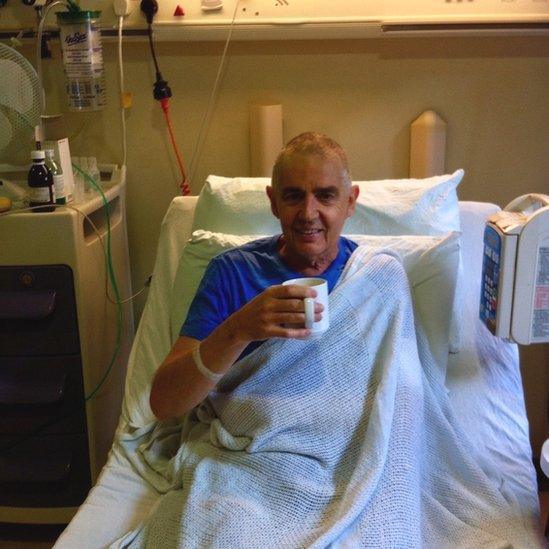
Gary received Karen's stem cells a day after she donated them

There are several stem cell registries in the UK, but their information is also stored on the national Anthony Nolan and NHS Stem Cell Registry, which has 1.4m people on its list.
Anyone between the ages of 18-55 and in general good health can become a potential donor. A match is made on the basis of human leukocyte antigen type, or tissue type, rather than on the basis of blood type.
When this happens, blood stem cells are collected from a donor. In 90% of cases, a thin needle takes blood from their arm and a machine extracts the stem cells. The blood is then returned to them through their other arm. The other 10% involves taking bone marrow from the hip.
Once extracted, the blood stem cells are infused into the patient through a drip in the arm, where they move through the bloodstream to the bone marrow where they belong. From there, they produce red and white blood cells and platelets, resulting in the donor's healthy blood stem cells replacing the patient's diseased cells.
For Gary, the results were as he had hoped.
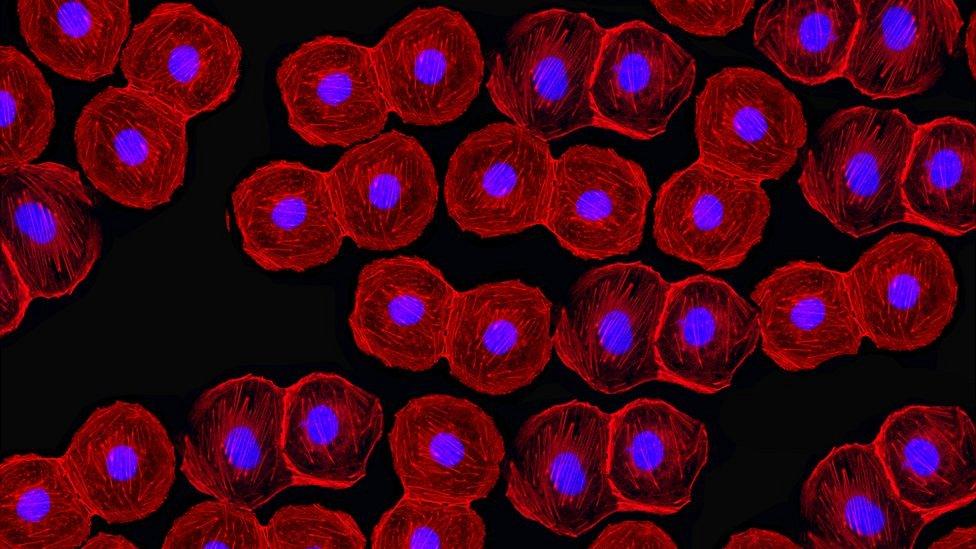
Patients from black, Asian or other minority backgrounds have a 20% chance of finding the best possible donor match, compared with 69% for white Northern Europeans
"The stem cells populated and started producing bone marrow within a couple weeks," he said.
"I can't describe how it feels when the doctors say they have detected white blood cells, it was quite an exciting, quite a moving moment."
Gary and Karen had returned to their respective homes at different ends of the country after the procedures and, to all intents and purposes, normal life. But both were anxious to know more about each other.
For Karen, there was an element of frustration - under UK law, there is a two-year window of anonymity from the date of a transplant and contact can only be made with the patient's consent.
"The only thing I knew was that it was a male over 18 in the UK, that was all the information I had," she said.
"You want to know, but on the other hand you're a little bit scared in case it hasn't worked."
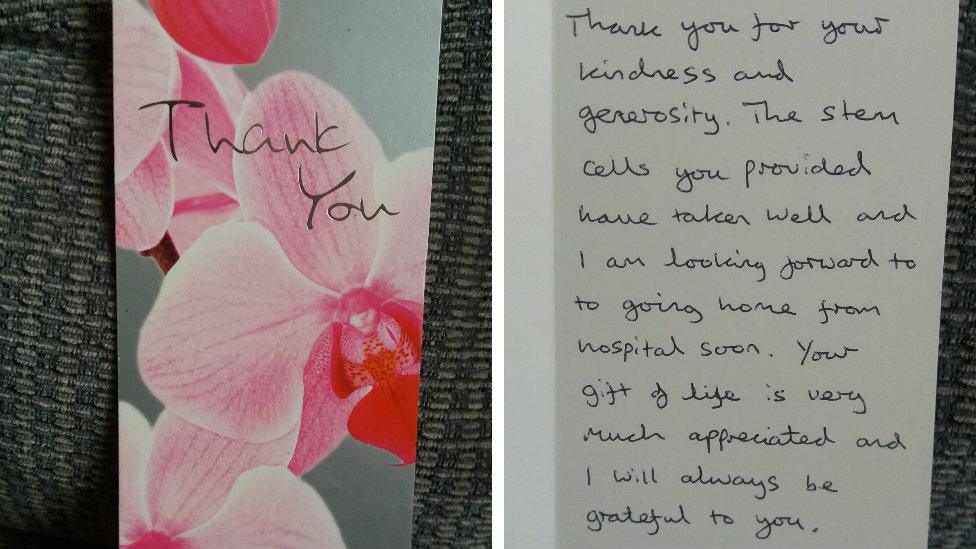
Karen and Gary exchanged letters for two years before finding out each other's identities
On Gary's part, he was overcome with the need to thank Karen. A loophole allows donors and recipients to exchange letters anonymously, and Gary did so right away.
"Thank you for your kindness and generosity," he wrote. "Your gift of life is much appreciated and I will always be grateful to you".
When the card dropped on Karen's doormat, she felt relieved.
"I thought, if that is all I find out - I'm happy."
But the pair continued to exchanged brief notes for the next two years, until they were able to exchange personal details through DKMS. Then, Gary said, there was a "rush of emails" between the two, sharing details of their lives and families.
Finally, on Christmas Day in 2018, Karen picked up the phone.
"We spoke for nearly an hour," said Gary. "We chatted about our families, what we did, I think she wanted to know about some of the stuff I went through.
"I was blown away, it was the best Christmas present I had that year."
They agreed they wanted to meet face to face and four months later, in April, they did so at a DKMS event in Birmingham. Gary was waiting in a restaurant for Karen to walk in - nervous, but excited.
Karen said: "When I [saw him], I said: 'At last, I've waited a long time for this'."

The pair met for the first time in April at a DKMS event in Birmingham

For 40-80% of patients, stem cell treatment is successful, according to DKMS, which has half a million potential donors on its register.
Survival after a transplant depends on many different factors, including the age and health condition of the patient, the timing of the donation, the type of underlying disease and on the emergence of potential complications.
Gary has been in remission for three-and-a-half years. He runs most morning and enjoys going for walks with Marion.
He has suffered no lasting effects, but he has to be careful about infection because his new immune system is immature and he has had to restart his childhood vaccinations. He still goes to Southampton Hospital for routine testing every three months.
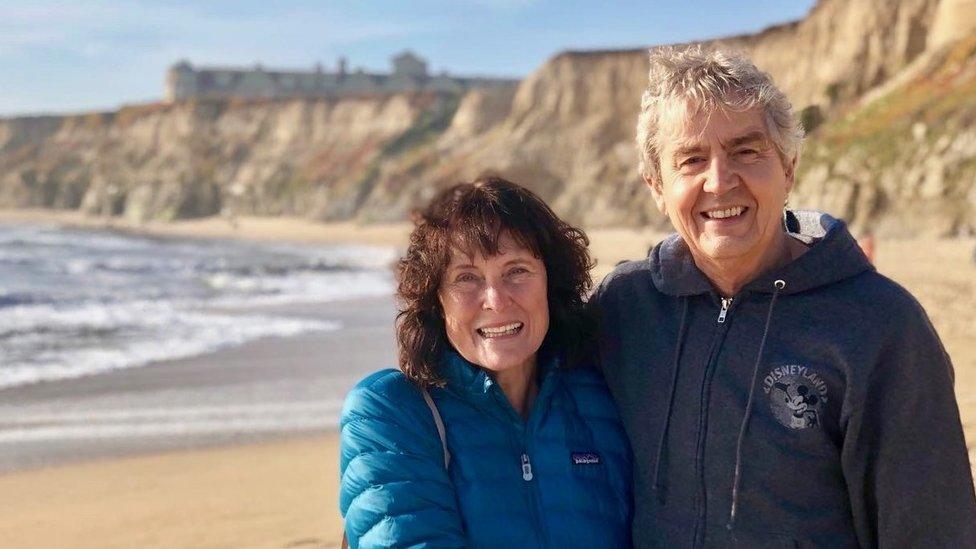
Gary, with wife Marion, said his life has been transformed since the transplant
"I am absolutely fine and considerably fitter than most 66-year-olds," he said. "It is not as if I've gone through treatment and become a frail old man, it has given me my whole life back.
"It is amazing how it has affected me and changed how I see the world. The sky is bluer, the green on the leaves is greener."
The friendship between Karen and Gary has continued. They meet up from time to time, and write to each other. He said they now refer to each other as "brother and sister".
"We just share normal updates, we are good friends. She was thrilled to hear about my son Philip getting engaged.
"Manchester to Lymington is miles away, so it is difficult to get together, but she really does feel like my sister."

You might also be interested in:

For Karen, who is married and has six grandchildren, the experience has also been life-changing.
"I do feel a close bond with Gary. It has just been really satisfying.
"How many people can say they have saved someone's life?"
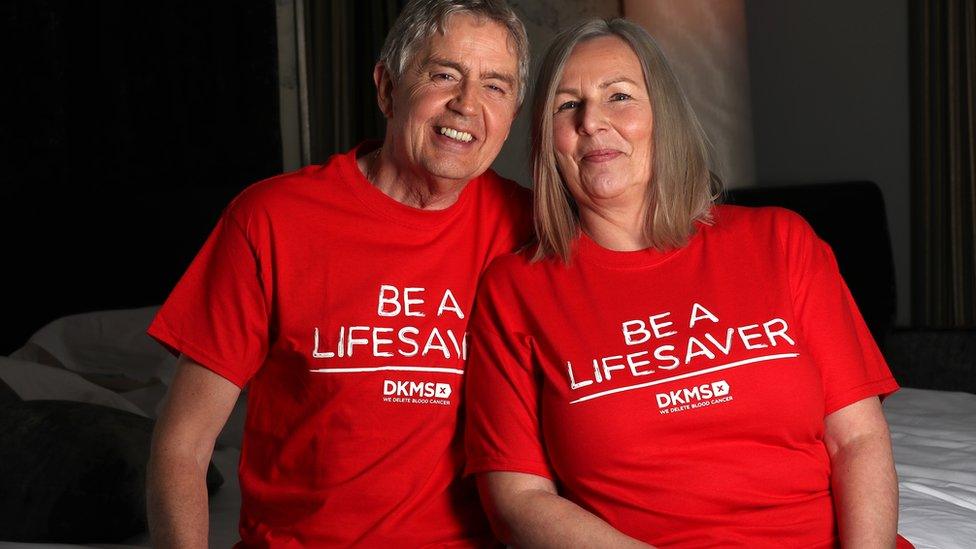
Gary and Karen, who live about 220 miles apart, talk regularly and hope to meet up again soon

About 70,000 people have joined the stem cell register so far this year, compared to a total of 125,000 in 2018.
Lisa Nugent, head of donor recruitment at DKMS, said it is on track for its most successful year yet, which she puts down to raised awareness following well-publicised drives to find matches for children.
Among them are Paddy Igoe, 12, from Coventry and six-year-old Ihsan Khan, from Telford, who have aplastic anemia, and Finley Hill, from Belbroughton in Worcestershire, who has the rare immune system disorder haemophagocytic lymphohistiocytosis.
Three matches were found earlier this year for five-year-old Oscar Saxelby-Lee from Worcester, who had his transplant recently.
Although, like Gary, his family will not immediately know the identity of his donor, his mother Olivia Saxelby said they would love to contact them in future.
"If they want to be part of our family, we will open those doors wider than anybody else and we hope they are prepared to spend every Christmas, every birthday with us."
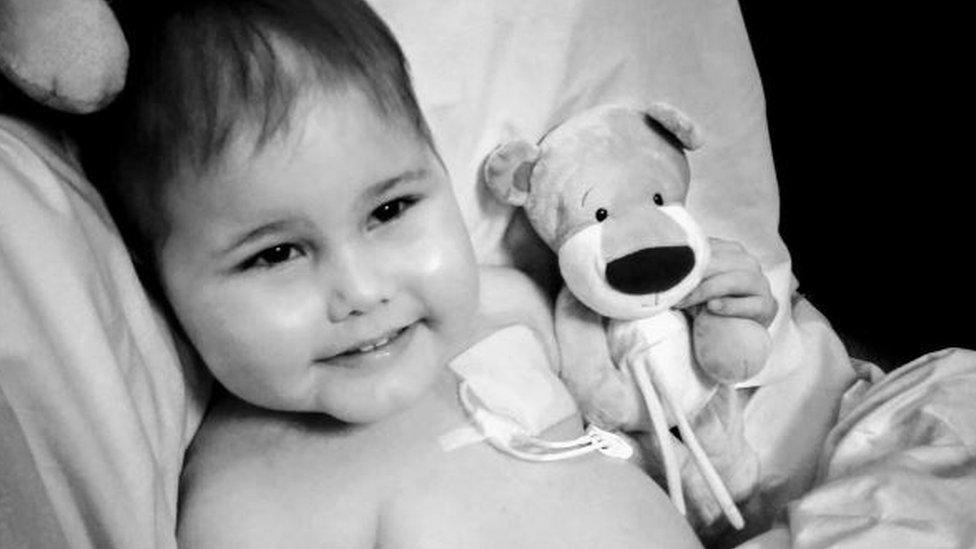
Oscar Saxelby-Lee's mother says she hopes to meet her son's donor
DKMS said more than 6,000 potential donors registered at the events for Oscar, while more than 3,000 registered at events for Paddy, Ms Nugent said.
All of those people, she said, have the potential to be a donor for someone, and one person registered during Oscar's campaign has already been identified as a match for another patient.
Ms Nugent said what the families, and their communities, have done to encourage people to join the donor register has been "phenomenal".
"I always think these families, who are going through the most difficult time imaginable, are sort-of paying it forward, they are doing something that will have a real help not only possibly to their family, but to others in need of a match," she said.
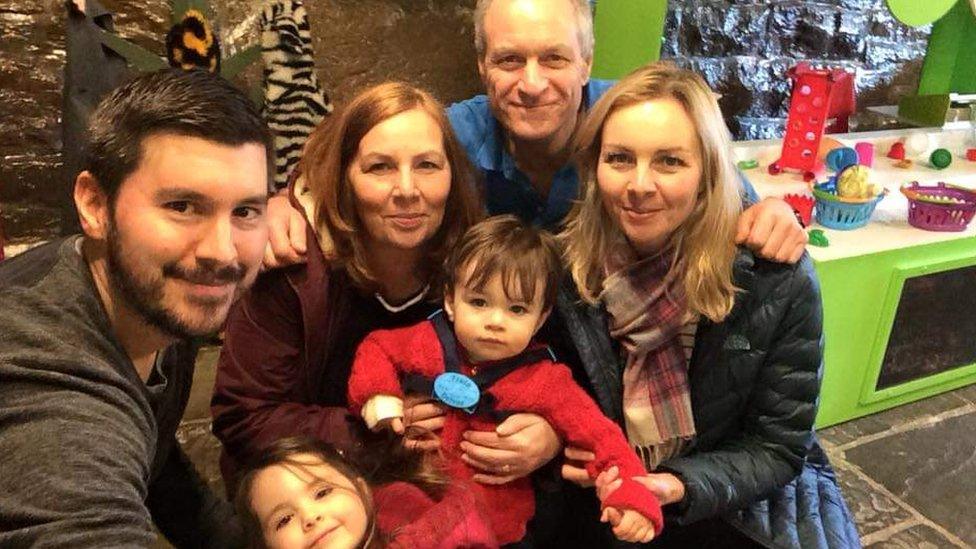
Karen is a grandmother-of-six and mother-of-three
Karen said her family was nervous about her making the donation but are proud of what she has achieved. A cousin and a former work colleague have even followed suit and become donors themselves.
"[Family and friends] know what I'm like once I have set my mind on something," Karen said.
"I'm proud of myself, I don't go around boasting, but whenever I talk about it, it is to encourage other people go on register."
Gary feels he will never truly be able to express the depth of his gratitude to Karen, who he credits with saving his life.
"She's so kind, extremely kind, extremely generous, a lovely family person - and she's a hugger, we're both huggers, which is good too.
"[The day we met] I was asked to give an off-the-cuff talk, which I was finding quite difficult, then Karen came and stood beside me and suddenly it was a lot easier, I was able to talk about our story.
"I remember her saying a few words about what she had done being nothing to what I'd been through, then I took the microphone off her.
"What she had done she didn't have to do, everything I did, I had to do.
"The thing is, what do you say? How do you say thank you, it doesn't seem enough."
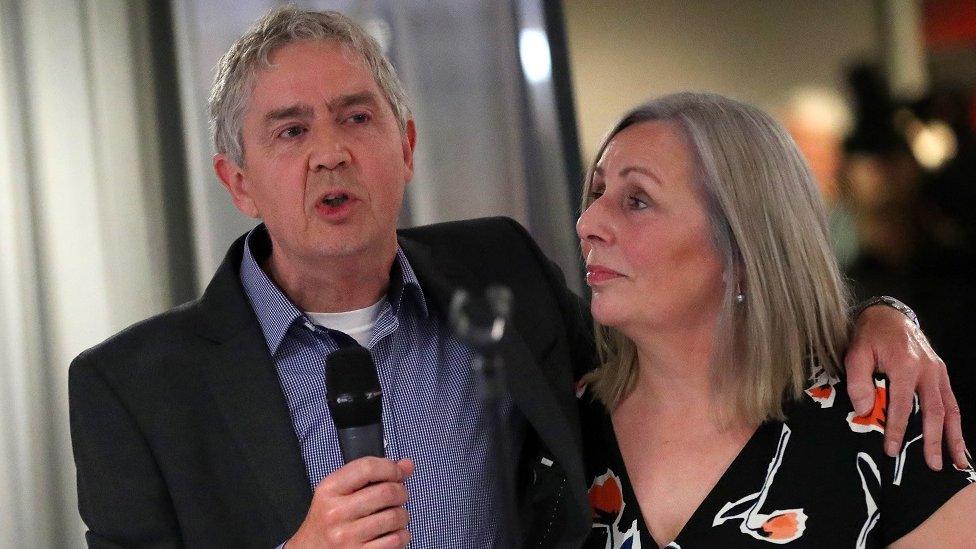
Gary said he did not know how to thank Karen for what she had done
- Published12 May 2019
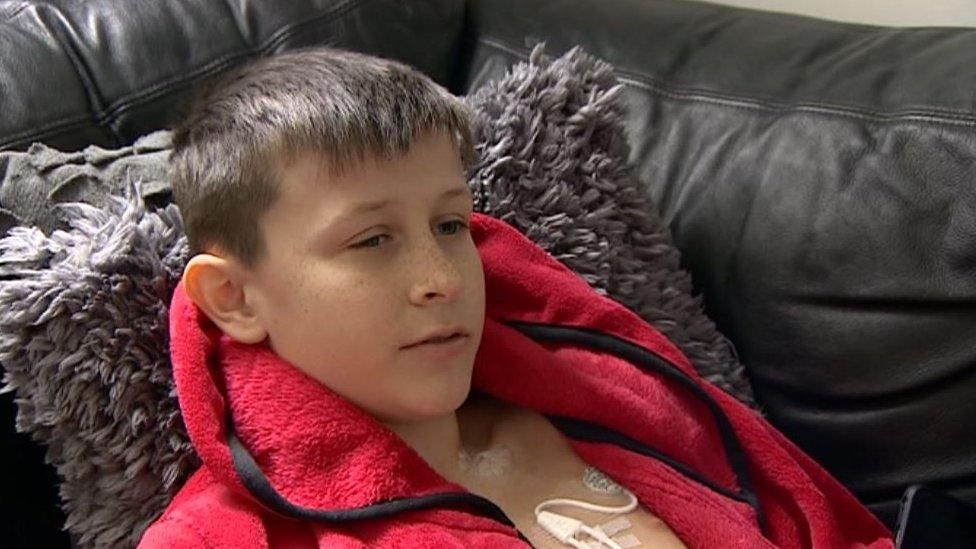
- Published11 May 2019
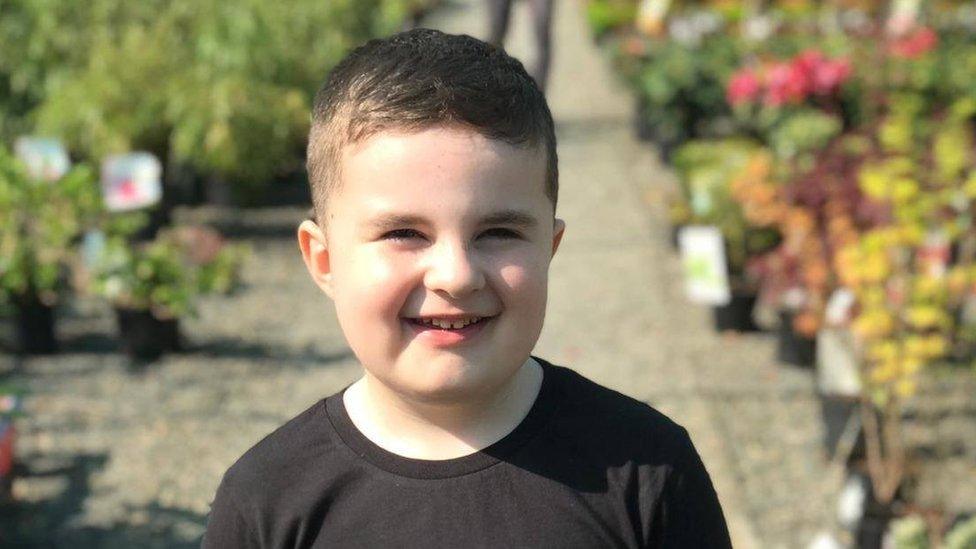
- Published3 May 2019
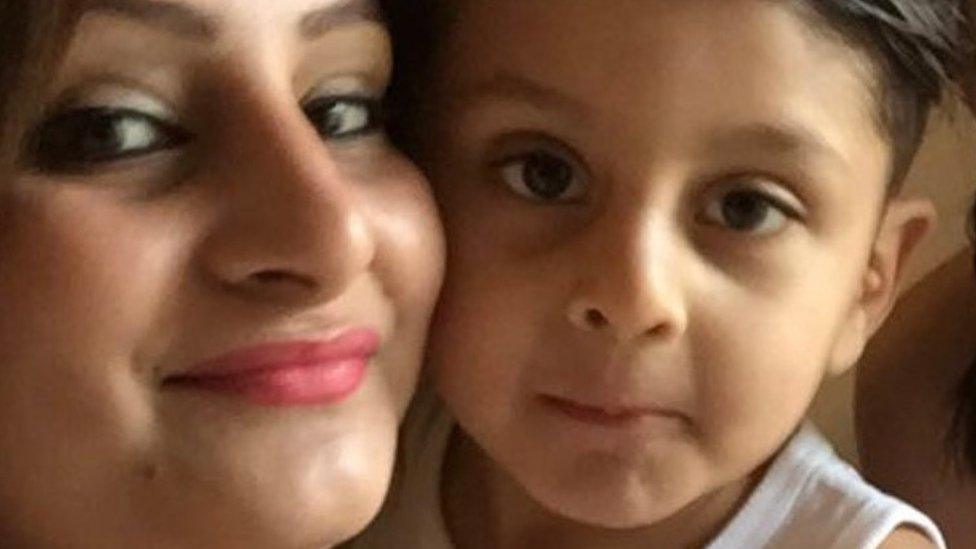
- Published30 April 2019
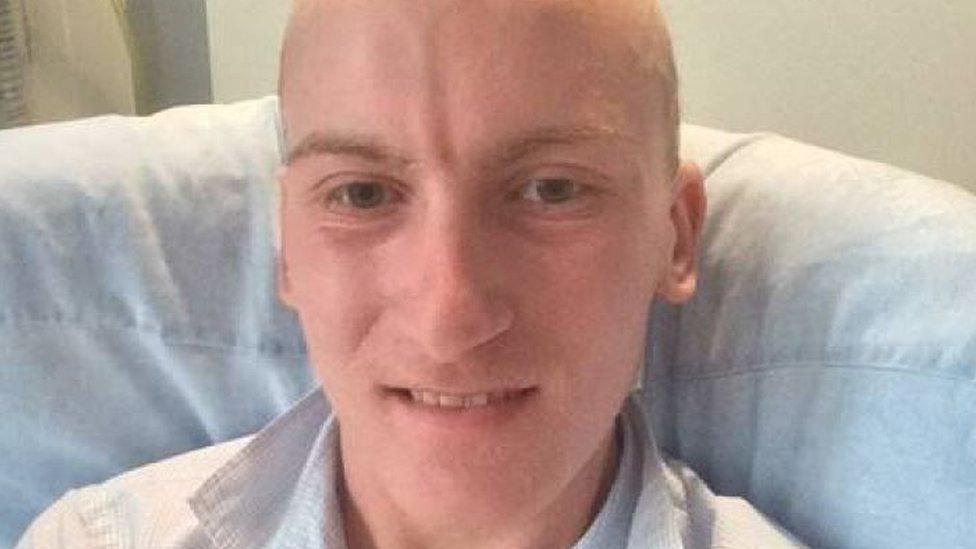
- Published29 March 2019
